7 women in Aus music tech who are crushing it
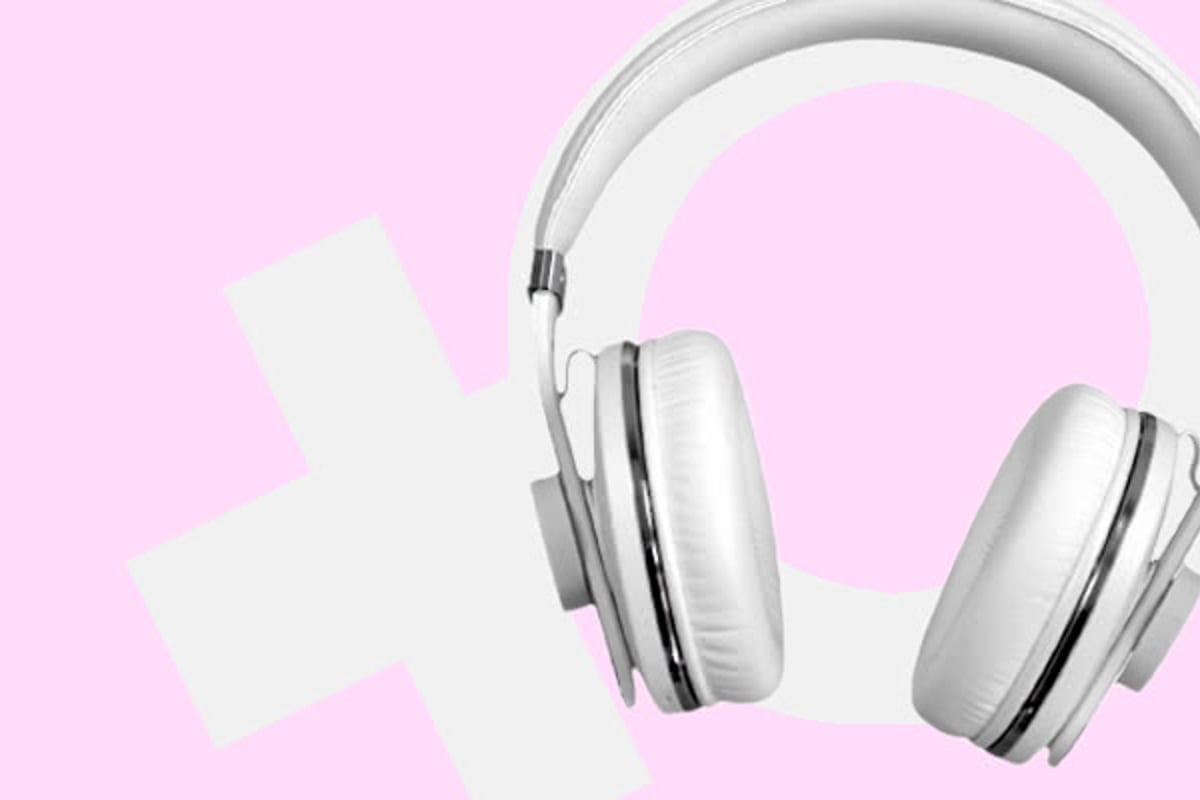
The stats around tech’s gender split aren’t even close to where they need to be (15.5% of women work in technical positions in the US), but when it comes to music tech companies in Australia, there’s no denying the important contribution females are making.
While the below list is neither comprehensive nor definitive, it does put a spotlight on seven women who are achieving incredible things.
Jane Huxley
Ex-Managing Director, Pandora Australia and New Zealand
In 2014, Pandora was one of the few Silicon Valley tech companies reporting against the 70/30 men-to-women breakdown that fellow tech giants Facebook, Google and Apple all hovered around. In 2016, it reported 52% of its employees are men and 48% are women.
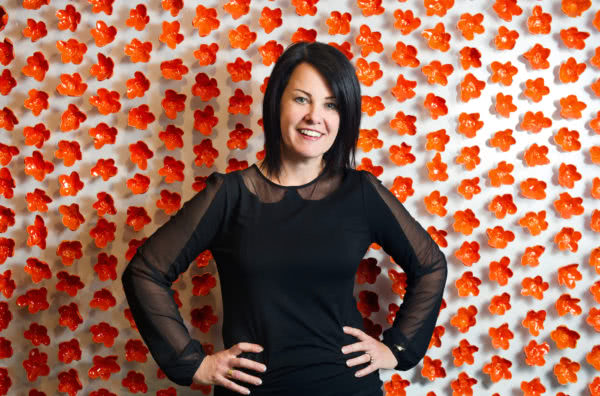
This week its Australia & New Zealand Managing Director Jane Huxley announced she will be departing her post on Friday to “pursue other opportunities”. After five years at the helm and as one of the founding staffers of the local operation, Huxley pioneered Pandora’s ascent in two of its three locations.
The Industry Observer spoke to Huxley prior to her resignation, making her comments below all the more significant.
What has your personal experience been like as a female in the typically male-dominated tech industry?
On the whole, my experience has been great, but of course there are tough times, and steep learning curves along the way. I think some of that has to do with the fact that streaming companies represent a hybrid of industries so we are influenced more broadly. Music is a big part of what we do, but so is advertising and technology. I have had a chance to work with men and women I respect across all three, and do so often in my day to day role.
What do you see as your greatest contribution to the industry?
I think of this as a two-fold answer. Firstly, education is a big part of what we do – whether that be the listener, advertisers or musicians – helping people to understand the shifting landscape and participate in whatever way makes sense. The digital/internet/mobile space is still evolving rapidly, so this job never ends. Secondly, I think about the mission Pandora has to help musicians make a living from doing what they love – and again the work we are doing particularly in access to data and tools to facilitate this. At the end of the day bringing artists and their fans closer together can benefit everyone.
How do you think women are faring in the local music tech industry?
I can really only answer this from a lens of the streaming platforms (as prior to this I was in media, tech and telco industries). It’s clear from the data that there are still issues with equity and parity, and to deny that would not be doing anyone a service. We can do better, we must do better, and we must go faster. Having said that, I am frequently crossing paths with incredible women, and also many men who are willing to support and sponsor them. Ensuring that we are shining a light on things that are working well, and frankly being smarter in spotting women with potential and braver in investing in it are things that we can all do to help.
Kate Bradley and Liz Thomas
Founders, Everywhere Roadie
Last year, Kate Bradley and Liz Thomas took on the altruistic task of getting artists everything they need to play shows wherever they can, without emptying their bank accounts.
Everywhere Roadie allows musicians to rent gear directly from other musicians, and those musicians then get paid for the rentals. Artists themselves, Kate Bradley (Dark Fair), Liz Thomas (Ouch My Face, The Loveless) along with co-founder Martin McDonald (Son of Sea), have just returned from music conference SXSW, where they took part in the Music Startup Spotlight.
Chatting to The Industry Observer, Kate and Liz may be less than a year into infiltrating the local tech market, but as they tell it, they’re already accustomed to a few of its challenges.
What has your personal experience been like as a female in a male-dominated tech industry?
Liz: We’re both musicians and I feel the two industries are quite similar. The majority of the time we’ll be treated as equal, but then there’s always the occasions when we’re seen as women first and business owners/musicians second. So you get used to having to prove yourself and then just move on from it – it’s hard and tiring to try and stay mentally fit enough to deal with those incidents and it obviously signals that there’s still a lot of work to be done in creating an equal playing field.
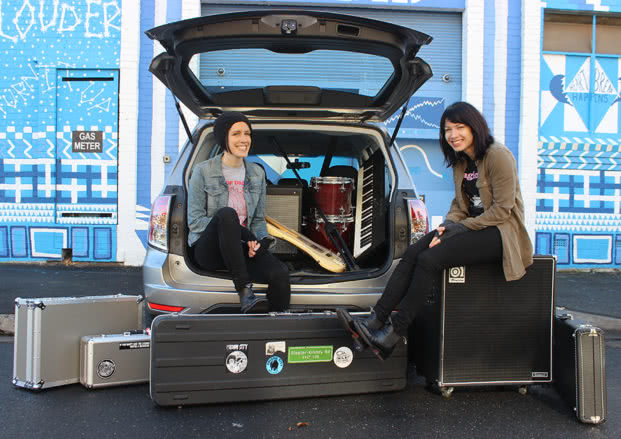
What do you see as your greatest contribution to the industry?
Kate: We see ourselves as part of a great community of women in music, tech and in the startup community, and by being in this space, hope to help and encourage more women to get involved. While we have been here in the US, we have been in discussions with other great women who have both tech and music backgrounds, who will work with us to continue to get our members great deals, access to more gear and other services across the globe.
We have contributed by putting in place a mechanism that will expand pathways for our artists and enable them to tour further and save rather than blow the budget. We want to see our members connected with each other, touring together beyond their local cities or countries of origin.
How do you think women are faring in the local music tech industry?
Liz: Without a doubt, there’s still a huge underrepresentation. There are some amazing organisations such as Code Like a Girl and Girl Geek Academy which are really shaking things up and encouraging more women to get involved within the tech space in general, but there’s still a long way to go, especially within the music-tech space.
At Everywhere Roadie we’re looking to expand our team this year and are especially looking for women developers and designers to come on board.
Jennie Sager
Head of Entertainment, Twitter
In 2016 all of Twitter’s open country head positions were filled by women, and it was no coincidence. Twitter has been hard at work building a more inclusive environment for its current and potential staffers.
It supports communities like support ADCOLOR (focused on diversity in creative fields), Tech Women, Lesbians Who Tech, AfroTech, the National Center for Women & Information Technology, and Girls Who Code, to name a few; its @TwitterWomen initiative developed the global #SheInspiresMe campaign; and it expanded its parental leave scheme to 20 weeks at full pay. The scheme is gender-neutral and open to those who become parents by birth, surrogacy or adoption.
One staff member who was able to tap into the parental scheme last year was Head of Entertainment Jennie Sager. Under the leadership of Twitter Australia’s managing director, Suzy Nicoletti, Sager is one of 50 local staffers who helped exceed the company’s female leadership target before the new paid parental leave policy was even implemented.
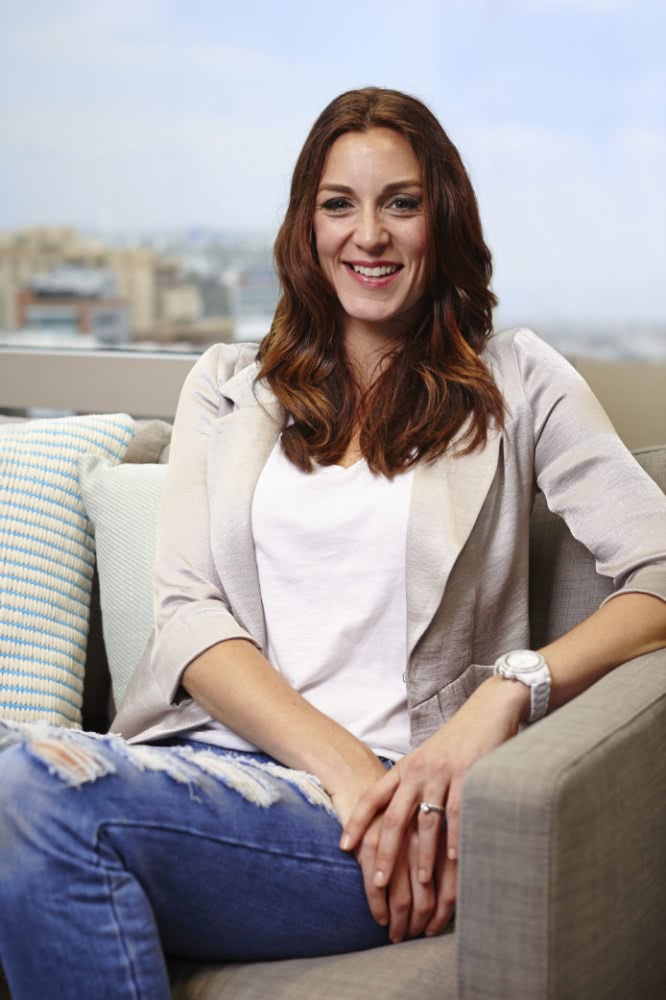
Sager has been leading by example since her first week at Twitter Australia, when she introduced the now globally-adopted Twitter Blue Room in September 2014. The space to accommodate the top users of the platform has been used by actors like Samuel L. Jackson and Matt Damon, artists like Little Mix and Megan Trainor and sports stars like cricketer Brett Lee.
In her role as Head of Entertainment Asia Pacific, Sager develops unique campaign ideas that drive high-quality content on and off the platform. Through her relationships with the industry she’s been an active champion of local emerging artists and has been using global first technology to do it. In light of Twitter’s moves for a more inclusive leadership, we asked Sager her thoughts on the current local tech landscape.
What has your personal experience been like as a female in a male-dominated tech industry?
I think every industry has a lot of work to do in relation to putting males and females on the same level. There is not one single industry who has gotten it right yet, but the good news is that there are more people than ever before fighting for equal pay and equal treatment, and companies are starting to change their ways. It is important that we change the mind-set of employers everywhere, not just the tech industry. Personally, I am used to being one of very few women on the team. The reality is, the higher up you get in a company, the less women you see. However, I do believe that hard work and big wins speak for themselves, and we have a great balance at Twitter Australia. In fact, our Managing Director is female!
How do you think women are faring in the local music tech industry?
I think women are on the rise in the local music tech industry. I am really lucky to partner with some incredible women in all areas of the music industry here in Australia, and many of them have become close friends of mine. I think the recent shift in politics around the world has reminded us that we are stronger together, and I am seeing women help each other out and lean in more than ever before. Again, there is still work to be done, but I think things are looking up.
What do you see as your greatest contribution to the industry?
I think it’s yet to come! I am always striving to go bigger and better than my last project and I am always looking to learn from others all over the world. In this industry, you need to be a self-starter and to challenge yourself, so I am constantly trying to push the envelope. Ask me again in 30 years!
Jacqui Louez Schoorl
CEO & Co-Founder, Jaxsta
With over 15-years experience in the entertainment industry – including a stint as George Lucas and Rick McCallum’s assistant on Star Wars at age 21 – it didn’t take long for Jacqui Louez Schoorl to realise the film and TV industry offered something the music industry didn’t: credit where credit is due.
Due to launch this year, Jaxsta aims to be the best resource for the music industry when it comes to label copy and liner notes. Bringing together data from verified sources, the label, PRO and management-agnostic tool promises to provide musicians, songwriters, producers, musicians, labels, publishers and fans with more information about music than any other provider.
“The Edison Cylinder in the early 1900s held all the credits for composers, producers and performers,” said Louez Schoorl. “In today’s digital world of music we are severely lacking when it comes to liner notes, working with our incredible data partners, Jaxsta will help to solve this industry wide issue.”
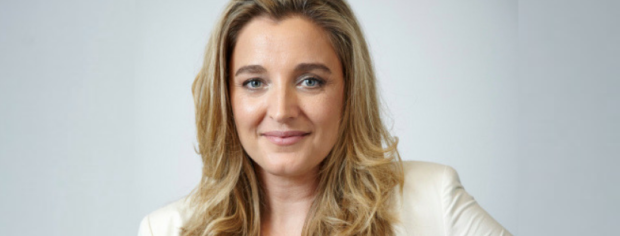
Louez Schoorl is also the founder of Women In Music Sydney. The networking group for women in the music industry started off as lunch for 40 women in 2015; it now has a database of over 700 women and hosts regular networking events featuring guest speakers including Ted Albert Award recipient Fifa Riccobono, John O’Donnell, MD of EMI Music Australia and Maria Amato, GM of the Australian Independent Record Labels Association (AIR).
We spoke to Louez Schoorl ahead of the next Women In Music Sydney event on March 29, when the guest speaker is Patricia Powell-Hughes, Managing Director of EP Australia.
What has your personal experience been like as a female in a male-dominated tech industry?
To be honest, I’m so focused on working with whom I consider to be the best team of people both in Australia and internationally, that I don’t think of it in terms of gender. For me right now it’s about getting the job done to the best of our collective ability. I’m fortunate to have built a great Jaxsta team that I’m really proud of; they all do an amazing job and I’d be pretty lost without them. I also know that without both the men and women I’ve worked with during the course of my career I wouldn’t be who I am today without their individual influence.
What do you see as your greatest contribution to the industry?
I’d like to think that people who know me are aware I like to acknowledge everyone I work with for everything they do – whether it’s for an introduction to a contact that leads to a major step forward in the Jaxsta journey, to the simple yet necessary thank you’s on a daily basis, especially when I know someone has personal issues going on outside of the office. For me it’s about giving back, I believe wholeheartedly in that and it’s what drives me with Jaxsta to create an opportunity to give credit where it’s due.
How do you think women are faring in the local music tech industry?
I run a not-for-profit group in Sydney called Women In Music (WIM) – I founded it a couple of years ago simply to give all women in music the opportunity to network. It’s so important to support each other and be proud of each other. It’s one of my proudest achievements and from WIM I’ve learnt that there is a whole industry of incredible women working very hard to achieve fabulous things, and I’m thrilled to be a part of that community.
During my journey from a Tech perspective, it’s been a steep learning curve and I’ve been really fortunate to meet some truly incredible women in tech who have become friends, mentors and colleagues. I am inspired daily by the number of women leading the charge within the tech and start-up sphere.
Pia Del Mastro
Director, My Electronic Music
Artist Manager, OnePlusOne Agency
Between helping artists with creative direction, touring and branding at Melbourne-based agency OnePlusOne, and managing Sydney techno producer Made in Paris, Pia Del Mastro heads up a one-day workshop to help kick-start careers in the electronic music industry.
Launched at the start of 2015, My Electronic Music (MEM), travels nationally to team electronic music figures – including producers, artist managers, touring agents and club owners – with emerging professionals.
Having been involved with various facets of the electronic music industry since 2009, Del Mastro says MEM was born from regular interactions with young artists and industry novices.
“I organically became someone that the youth was asking questions of: how do I sign a record with no contacts? What should my logo look like? Is there a certain team I need around me if I want to be a producer?
“I had a plan to get likeminded individuals together, in a safe environment to all ask question together – and what better way to do it than to invite industry professionals in various roles to chat about their experience, answer questions and perhaps even take a demo!”
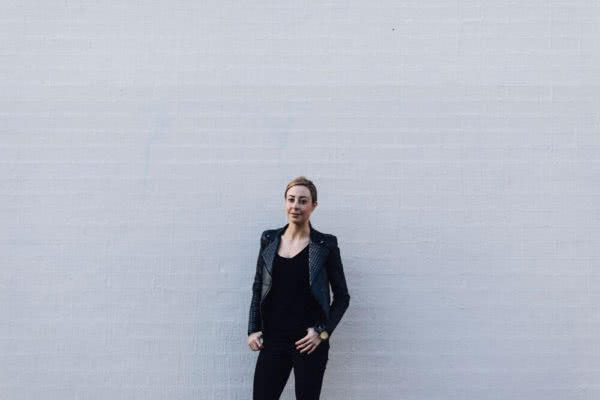
Del Mastro says MEM has taken a brief break to “focus on new trends, ways to communicate with the youth and how we can travel further both on ground and digitally.” However, its last workshop in February 2016 saw 26 speakers take part in a full day of discussion and networking. Its speakers included Tom Piper of Medium Rare Recordings, Josh Williams, aka electronic artist Arcane Echo, LA producer Protohype and Stereosonic and Auditree founder Vanessa Cohen.
Australia’s EDM scene – and studio production ream for the matter – is largely male dominated. Has MEM been a tool for women looking to enter either scene?
As you see it, electronic music most definitely has held numbers that show males do dominate. However, females right now are in a position where we can speak, we have equal talent, equal contacts and also an equal ability to expose ourselves locally and offshore.
Women are working closely with men and other women to elevate their reach within the industry, while also curating their own amazing projects that are screaming success in every corner of the scene whether it be production and performance to PR.
MEM was so amazing for this reason. We saw so many women come through and so keen to learn and be involved with other participants. Since hosting the events in various cities we have seen many of these women go on to be signed, and booked and jumping into studio sessions with others in the workshops and with our amazing industry panel reps. It has given both men and women a creative push. That is equal and that is where it needs to remain.
You’ve worked in the dance music industry for around 15 years, what do you see as your greatest contribution to the industry?
MEM was definitely up there. It was a HUGE challenge and still is as our industry evolves and we as an interactive workshop are working to evolve with it. It opened up avenues for young people and made it ok to ask questions of people with so much experience and knowledge. This alone is important because my whole career I have had to do things myself and ask questions which hasn’t always been easy. It can really be intimidating, and with the internet being so prominent now proper information can be hard to come by.
Managing Made in Paris is my other greatest achievement. In less than three years I have seen this Sydney techno producer and DJ take to new heights every single day and she really has given me an opportunity to work passionately on an artist level. [OnePlusOne] as a team have completely elevated her profile in Australia and across the world musically and as a brand. We have also started a record label together which is doing amazingly and that alone is embracing emerging talent within the techno and tech house scene in Australia.
I have lived and worked in Ibiza, travelled with music festivals and toured some of the world’s most respected artists, so music has really given me amazing opportunities and successes all round.
How do you think women are faring in the local music tech industry?
It’s getting better and better every day. Women are giving the industry some of the best products out there while also sending messages of creative strength, dedication and solid knowledge. In terms of output, women are just as capable as men, deliver excellent results and are in high demand more and more. If you are smart, driven and know what you want as a woman there really is no stopping you and this is something I live by.
I have learned my craft from some of the most amazing men in the industry too, but I’ve also have been pushed away by men. However, this can happen the other way round too. It’s about embracing your abilities and being true to yourself while welcoming opportunities full circle. Made in Paris is one artist that owns her position so well in the biz alongside so many others.
Kate Vale
Managing Director, Spotify Australia & New Zealand
From gender diversity initiatives like unconscious bias training, non-gendered bathroom options and non-binary gender option at sign-up, to the parental leave scheme which saw its #leadonleave team invited to the White House, Spotify is undoubtedly one of the leaders for gender diversity in music tech.
Kate Vale is one of Australia’s most senior tech leaders. As the very first employee of Google locally as Head of Sales in 2002, and as the driver of YouTube’s sales strategy Australasia from 2009-2010, Vale was always going to become a linchpin in the streaming revolution.
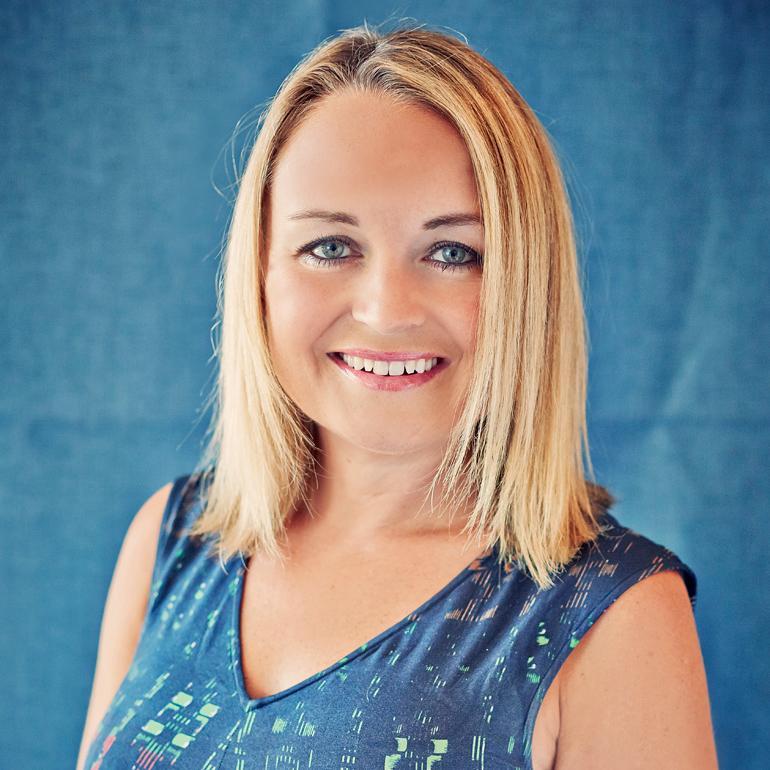
Speaking to Kate Constantine from the KONTENTED KOLLECTIVE podcast last September, Vale said:
“I’ve been incredibly lucky to be working for a company that is so flexible and understanding with the fact that I’m a working mum. I think that’s really difficult to find in this day and age.”
Vale said she works 9-5 each day to ensure a work/life balance.
“You can ask anyone in my team, I’m out the door at 5 o’clock every day,” she said. “I want to go home, I want a balanced lifestyle, I want to spend time with my children before they go to bed. If I want to come on later at night and check my email and finish wish work off then, I’m able to do that. I do not feel guilty one single bit.”
Speaking to The Industry Observer from her reloacted post in LA, Vale offered some insight into her world as an almost two-decade veteran of the sector.
I have worked in the tech space for almost 20 years and although it’s obvious that I am in a male dominated space, I have been fortunate enough to work for employers who are very supportive of diversity in the workplace.My experience working in such supportive environments has taught me the importance of equal opportunity in the workplace – regardless of gender, ethnicity, sexuality or rank. Companies thrive when their employees feel like they can be themselves and be recognised and rewarded for what they’re bringing to the table.At Spotify, we’ve strived to foster an environment where everyone is respected and treated equally – where everyone has a “seat at the table”. We just don’t tolerate anything less. I truly believe this attitude has helped us achieve the successes we have to date. A company is only as good as its people.
What do you see as your greatest contribution to the industry?
I was fortunate enough at Spotify and Google to be the first hire in market for both companies. It’s a great feeling to have helped build both businesses from the ground up – this is probably my greatest career achievement.
During my time at Google (around eight years) I went on maternity leave for the first time. I was actually the first person in the office to apply for this type of leave and so was instrumental in forming a parental leave policy that was market leading in Australia at that time.
How do you think women are faring in the local music tech industry?
I can’t speak for the whole music / tech industry, however from my own experience working with Spotify over the past five years, I’m extremely proud to see some incredible women taking leadership positions in our Sydney office – across Marketing, PR / Comms, Editorial and Sales.
In saying that, I recognise we still have some way to go as an industry. I would certainly love to see more women placed in top leadership positions – particularly in the tech industry, which has traditionally be dominated by men. I’ve met some dynamic women in the tech space over the years, so I know the talent is out there.
This article originally appeared on The Industry Observer, which is now part of The Music Network.






























